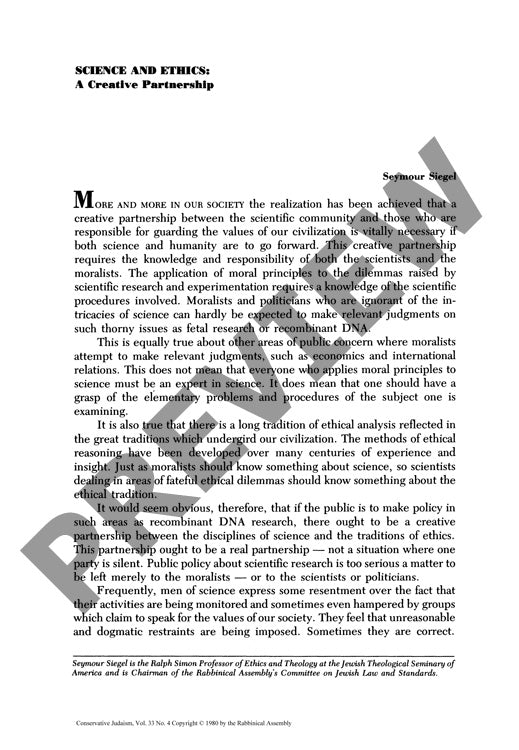Science and Ethics a Creative Partnershi
Couldn't load pickup availability
The ethical oversight of scientific research requires true partnership, not mere supervision or constraint. When scientists versed in moral frameworks collaborate with ethicists who understand laboratory procedures, both research integrity and public safety benefit substantially. This dynamic emerged clearly during the recombinant DNA controversy of the 1970s, as initial safety concerns raised in 1973 evolved into workable solutions by 1977 through cooperative problem-solving. Historical analysis of this period reveals how the implementation of NIH guidelines and institutional biohazards committees, developed jointly by researchers and ethicists, enabled vital research to proceed while addressing public concerns. The creation of specialized containment facilities and modified bacterial strains incapable of surviving outside laboratories exemplifies how technical innovation guided by ethical insight can reduce risks while preserving scientific progress. Neither scientific self-regulation nor uninformed external oversight proved sufficient in isolation; instead, genuine interdisciplinary partnership yielded optimal outcomes. This creative collaboration, supported by governmental regulatory frameworks, demonstrates a viable model for balancing scientific advancement with public safety through informed, cooperative decision-making processes that serve both research progress and societal welfare.

More Information
-
Physical Description
-
Publication Information
Published 1980
ISBN
-
Publication Credits
Seymour Siegel

